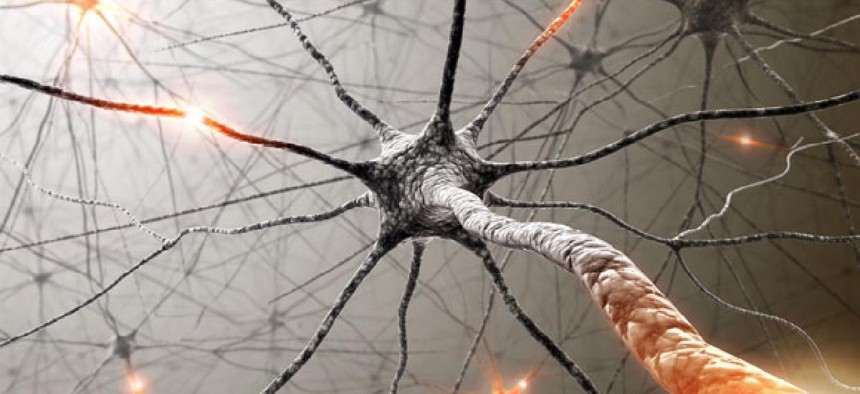Distinguishing Brain From Mind

ktsdesign/Shutterstock.com
In coming years, neuroscience will answer questions we don't even yet know to ask. Sometimes, though, focus on the brain is misleading.
From the recent announcement of President Obama's BRAIN Initiative to the Technicolor brain scans ("This is your brain on God/love/envy etc") on magazine covers all around, neuroscience has captured the public imagination like never before.
Understanding the brain is of course essential to developing treatments for devastating illnesses like schizophrenia and Parkinson's. More abstract but no less compelling, the functioning of the brain is intimately tied to our sense of self, our identity, our memories and aspirations. But the excitement to explore the brain has spawned a new fixation that my colleague Scott Lilienfeld and I call neurocentrism -- the view that human behavior can be best explained by looking solely or primarily at the brain.
Sometimes the neural level of explanation is appropriate. When scientists develop diagnostic tests or a medications for, say, Alzheimer's disease, they investigate the hallmarks of the condition: amyloid plaques that disrupt communication between neurons, and neurofibrillary tangles that degrade them.
Other times, a neural explanation can lead us astray. In my own field of addiction psychiatry, neurocentrism is ascendant -- and not for the better. Thanks to heavy promotion by the National Institute on Drug Abuse, part of the National Institutes of Health, addiction has been labeled a "brain disease."
(Image via ktsdesign/Shutterstock.com)
NEXT STORY: Today Is the Real Memorial Day





